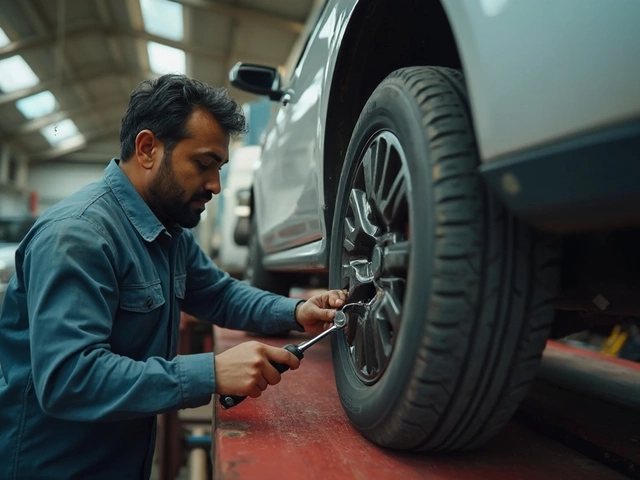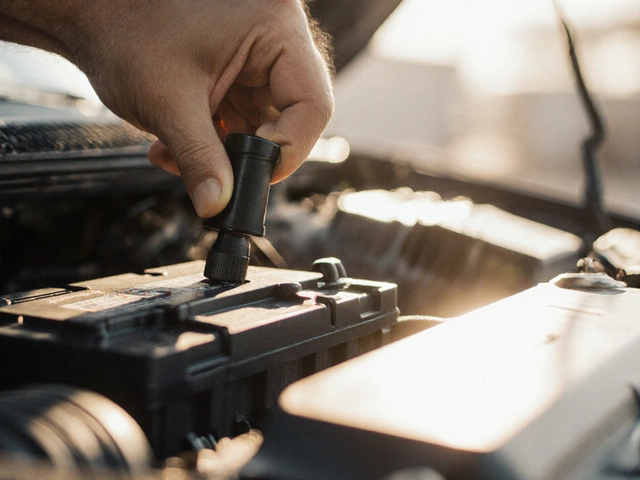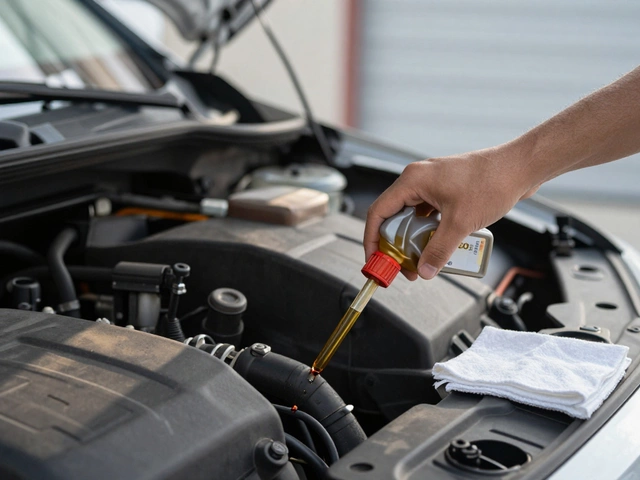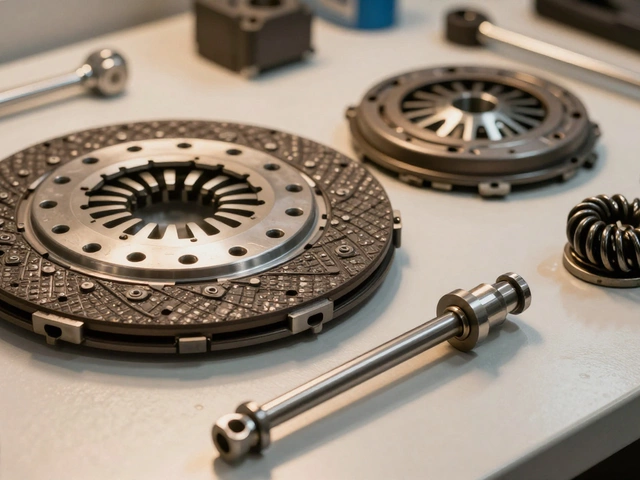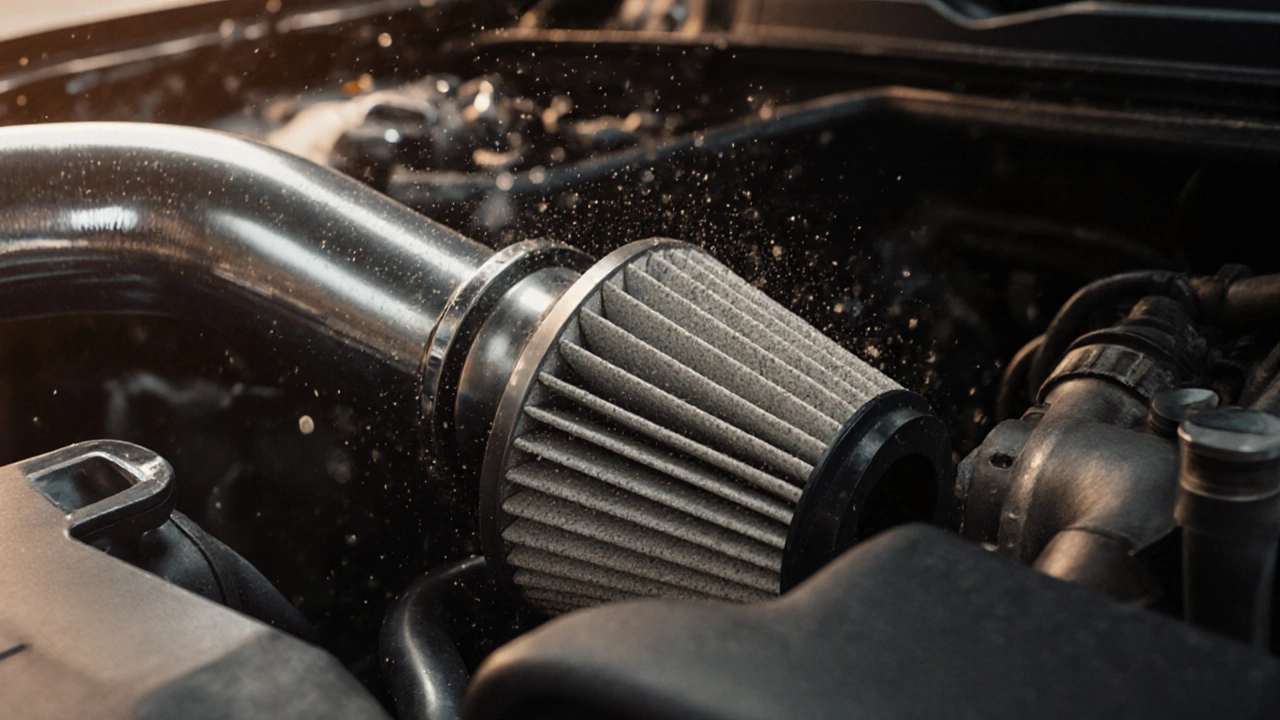
Air Filter Replacement Calculator
Calculate Your Next Filter Replacement
Results
When you hear the term Air filter is a device that removes unwanted particles from the air before it reaches a critical component, you might picture a simple mesh in a car’s engine bay. In reality, air filters protect everything from engines to cabin occupants, improve fuel efficiency, and keep pollutants out of the atmosphere. Below we unpack the main air filter uses across vehicles, homes, and industry, and show how choosing the right filter can save you money and hassle.
Why an engine needs clean air
Inside any combustion engine, air mixes with fuel to create power. If dust, pollen, or metal shavings enter the combustion chamber, they can scratch cylinder walls, erode piston rings, and spark premature wear. The Engine air filter is a replaceable element mounted in the intake tract that traps particulate matter before it reaches the engine. By keeping the intake air clean, the filter preserves combustion efficiency, helps maintain optimal Fuel economy is the distance a vehicle can travel per unit of fuel, and reduces the risk of costly engine repairs.
Cabin comfort and health
Modern cars also draw air into the passenger cabin through a separate system. The Cabin air filter is a filter located in the HVAC (heating, ventilation, and air‑conditioning) system that removes dust, pollen, and pollutants from the air you breathe inside the vehicle. For drivers with allergies, a fresh cabin filter can mean the difference between a sneeze‑free commute and a constant runny nose. In urban areas, these filters also capture Particulate matter is tiny solid or liquid particles suspended in the air, often measured as PM2.5 or PM10 that contribute to smog and respiratory problems.
Home and office air quality
Beyond vehicles, air filters are essential in indoor environments. HEPA (High‑Efficiency Particulate Air) filters, for instance, can trap 99.97% of particles as small as 0.3 microns, making them the go‑to choice for allergy sufferers and clean‑room facilities. While the focus of this article is automotive, the same principles apply: clean intake air protects equipment, improves performance, and safeguards health.
Environmental impact and regulations
Clean air intake isn’t just about engine longevity; it also affects emissions. When an engine runs on pure air‑fuel mixture, combustion is more complete, which lowers Vehicle emissions is the pollutants released from a vehicle’s exhaust, including CO₂, NOx, and hydrocarbons. Many governments, including the United States EPA, set strict standards that indirectly require well‑maintained air filters. Non‑compliant filters can cause engines to run richer, increasing carbon output and potentially leading to fines.
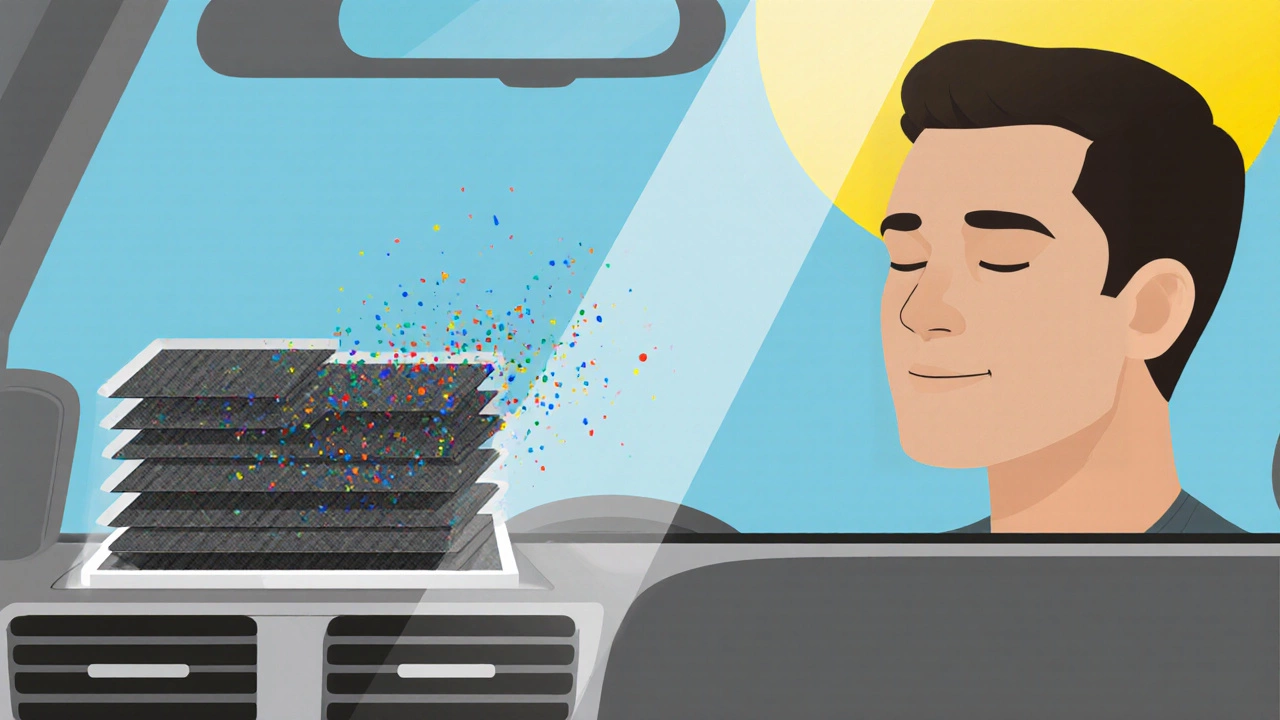
Types of air filters and their media
| Filter Type | Location | Primary Function | Typical Media | Typical Replacement Interval |
|---|---|---|---|---|
| Engine Air Filter | Air intake pipe | Protect engine combustion chamber | Paper, cotton, synthetic media | 12,000-15,000km (or 12months) |
| Cabin Air Filter | HVAC plenum | Clean interior air for occupants | Paper, activated carbon | 15,000-20,000km (or 12months) |
| HEPA Filter | Home/office HVAC units | Capture allergens and fine particles | Dense glass‑fiber mat | 2-3years (depends on usage) |
| Oil Filter | Engine oil circuit | Remove contaminants from lubricating oil | Cellulose, synthetic media | 5,000-10,000km |
Choosing the right media for your needs
Not all filter media perform the same. Synthetic media is a man‑made fiber material that offers higher flow rates and longer life than paper, often used in high‑performance or off‑road engines. Paper filters are cheap and work well for typical daily driving, but they can become clogged quicker in dusty environments. Activated carbon layers in cabin filters also adsorb odors and volatile organic compounds (VOCs), improving in‑car comfort.
Maintenance tips to maximize filter life
- Inspect the filter at every oil change; a visibly dirty surface signals a replacement.
- For paper filters, a gentle tap‑out of dust can extend life by a few thousand kilometers.
- Consider reusable cotton or synthetic kits if you frequently drive on gravel roads; they can be cleaned with mild soap and air‑dried.
- When swapping to high‑flow filters, monitor engine temperature and fuel trim readouts to ensure the engine isn’t running lean.

Common pitfalls and how to avoid them
Installing the wrong filter size can reduce airflow, leading to higher fuel consumption and even engine misfire. Always verify the part number against the vehicle’s VIN. Another mistake is re‑using disposable filters after a simple wash - the seal can be compromised, allowing unfiltered air in. Finally, neglecting cabin filter replacement can let allergens accumulate, hurting occupants’ health and overloading the HVAC fan, which may cause premature motor wear.
When to upgrade: performance vs. protection
If you’re after a modest power boost, a high‑flow synthetic engine filter can increase airflow by up to 10%, translating into a slight horsepower gain on naturally aspirated engines. However, the trade‑off is a shorter lifespan and the need for more frequent checks. For most drivers, the safest bet is a quality paper or cotton filter that balances protection, cost, and convenience.
Future trends in air filtration
Manufacturers are experimenting with nano‑coated fibers that repel dust and moisture, extending filter life. Some premium vehicles now feature sensor‑based filter monitoring that alerts drivers when pressure drop exceeds a threshold, ensuring timely replacement. In the broader market, stricter EPA regulations is environmental standards set by the U.S. Environmental Protection Agency to limit emissions and protect air quality are pushing automakers to adopt more efficient filtration systems.
Frequently Asked Questions
How often should I replace my engine air filter?
Most manufacturers recommend a new filter every 12,000-15,000km or once a year, whichever comes first. Dusty roads or off‑road use may require earlier changes.
Can a clogged cabin filter affect my car’s fuel consumption?
Yes. A severely clogged cabin filter forces the HVAC fan to work harder, which draws extra power from the engine and can raise fuel use by a few percent.
Are reusable air filters worth the extra cost?
For drivers who frequently travel on dusty roads, reusable cotton or synthetic filters can save money over time. They need regular cleaning and proper re‑sealing, though.
What’s the difference between a paper and a synthetic engine filter?
Paper filters are inexpensive and provide adequate protection for normal driving. Synthetic filters allow more airflow and last longer under heavy‑dust conditions, but they’re pricier and may need more frequent inspections.
Do air filters affect my car’s emissions test?
A clean engine filter helps maintain proper air‑fuel ratio, which can lower exhaust pollutants and improve the result of an emissions test. A clogged filter may cause higher hydrocarbon output.
